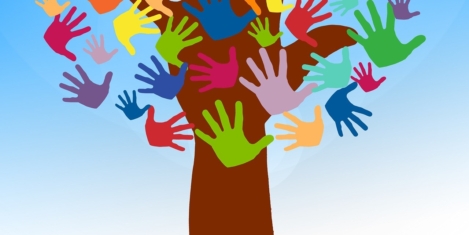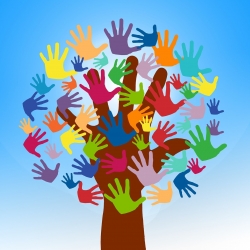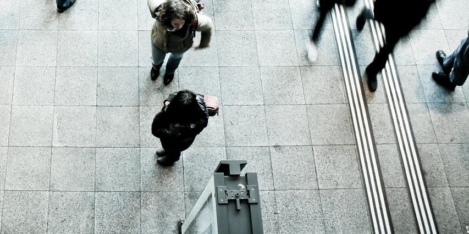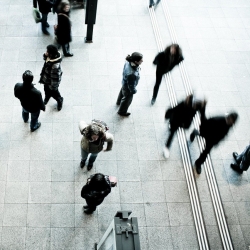To provide the best experiences, we use technologies like cookies to store and/or access device information. Consenting to these technologies will allow us to process data such as browsing behaviour or unique IDs on this site. Not consenting or withdrawing consent, may adversely affect certain features and functions.
The technical storage or access is strictly necessary for the legitimate purpose of enabling the use of a specific service explicitly requested by the subscriber or user, or for the sole purpose of carrying out the transmission of a communication over an electronic communications network.
The technical storage or access is necessary for the legitimate purpose of storing preferences that are not requested by the subscriber or user.
The technical storage or access that is used exclusively for statistical purposes.
The technical storage or access that is used exclusively for anonymous statistical purposes. Without a subpoena, voluntary compliance on the part of your Internet Service Provider, or additional records from a third party, information stored or retrieved for this purpose alone cannot usually be used to identify you.
The technical storage or access is required to create user profiles to send advertising, or to track the user on a website or across several websites for similar marketing purposes.
![]() The EU Parliament has announced that it would like to protect what it calls employees’ fundamental rights to disconnect from work which includes restricting the way employers might contact staff outside their contracted working hours. Although the right to disconnect is not defined by EU law, the Parliament has called upon the Commission to come up with a law allowing employees to disconnect from work during non-work hours without consequences and setting minimum standards for remote work. (more…)
The EU Parliament has announced that it would like to protect what it calls employees’ fundamental rights to disconnect from work which includes restricting the way employers might contact staff outside their contracted working hours. Although the right to disconnect is not defined by EU law, the Parliament has called upon the Commission to come up with a law allowing employees to disconnect from work during non-work hours without consequences and setting minimum standards for remote work. (more…)





 New research from Opinion Matters, commissioned by
New research from Opinion Matters, commissioned by 


 Mace has announced that it has achieved its ambition to be a net zero carbon business in 2020. Following the statement in January 2020 that the company had committed to the ambitious target, the executive board has confirmed that after driving down its carbon emissions as far as possible across its developments and operations it has offset the remaining emissions.
Mace has announced that it has achieved its ambition to be a net zero carbon business in 2020. Following the statement in January 2020 that the company had committed to the ambitious target, the executive board has confirmed that after driving down its carbon emissions as far as possible across its developments and operations it has offset the remaining emissions. 
 As companies struggle to motivate teams working remotely, new research by the charity
As companies struggle to motivate teams working remotely, new research by the charity 
 Last year, many organisations were forced overnight to adjust to new ways of working. Digital transformation accelerated, and collaborative activities were recreated virtually. But while teams have adapted functionally to maintain productivity, organisational leaders need to pay special attention to the “intangible” cultural aspects and their overall purpose.
Last year, many organisations were forced overnight to adjust to new ways of working. Digital transformation accelerated, and collaborative activities were recreated virtually. But while teams have adapted functionally to maintain productivity, organisational leaders need to pay special attention to the “intangible” cultural aspects and their overall purpose. 
 The idea of a Global Village comes loaded with a number of idyllic connotations. Most of them derive from the use of the word village itself, which triggers the idea of a community in our minds. Yet even the man who coined and popularised the term in the 1950s and 60s to describe a world contracted by new media understood that there are always complications whenever technology rubs up against human beings.
The idea of a Global Village comes loaded with a number of idyllic connotations. Most of them derive from the use of the word village itself, which triggers the idea of a community in our minds. Yet even the man who coined and popularised the term in the 1950s and 60s to describe a world contracted by new media understood that there are always complications whenever technology rubs up against human beings. 


 As the world prepares to close the book on the unprecedented events of 2020 and looks ahead to 2021 with renewed hope and optimism, global research from
As the world prepares to close the book on the unprecedented events of 2020 and looks ahead to 2021 with renewed hope and optimism, global research from 
 With the continuous impact of the pandemic on people’s mental health due to isolation, work uncertainty, and anxiety over health, the topic has been dominating the news, begging the question of how we can achieve accessible and cost-effective treatment for all and prevent the expected acceleration of mental health issues in the coming months. As we juggle a different type of work-life balance brought about by working from home and the added worry of how the pandemic is affecting us, there is no doubt that our daily lives have been disrupted. The statistics are alarming;
With the continuous impact of the pandemic on people’s mental health due to isolation, work uncertainty, and anxiety over health, the topic has been dominating the news, begging the question of how we can achieve accessible and cost-effective treatment for all and prevent the expected acceleration of mental health issues in the coming months. As we juggle a different type of work-life balance brought about by working from home and the added worry of how the pandemic is affecting us, there is no doubt that our daily lives have been disrupted. The statistics are alarming; 
 When Donald Trump was
When Donald Trump was 








January 12, 2021
Burnt out workers need to regain some balance
by Dan Zakai • Comment, Wellbeing, Workplace design